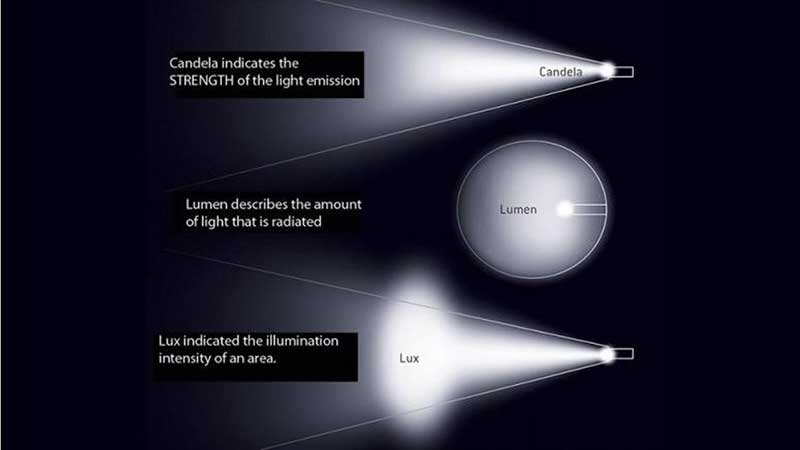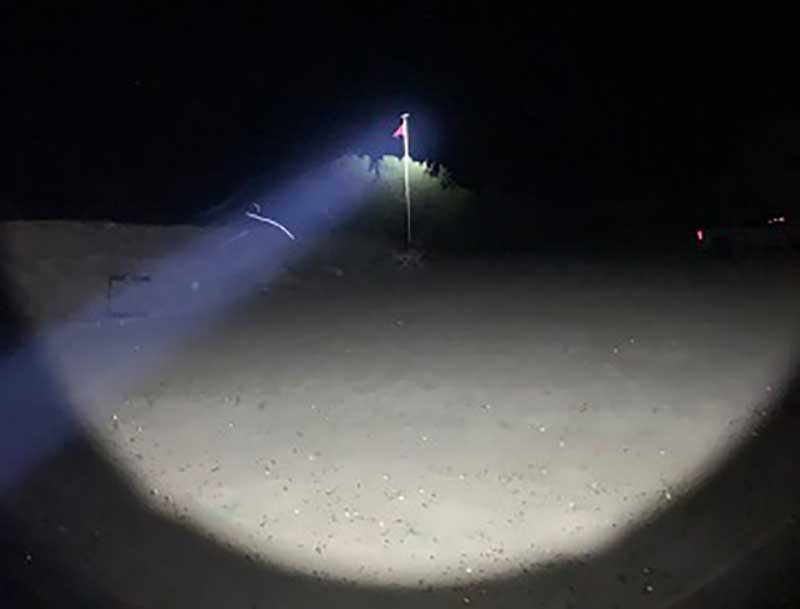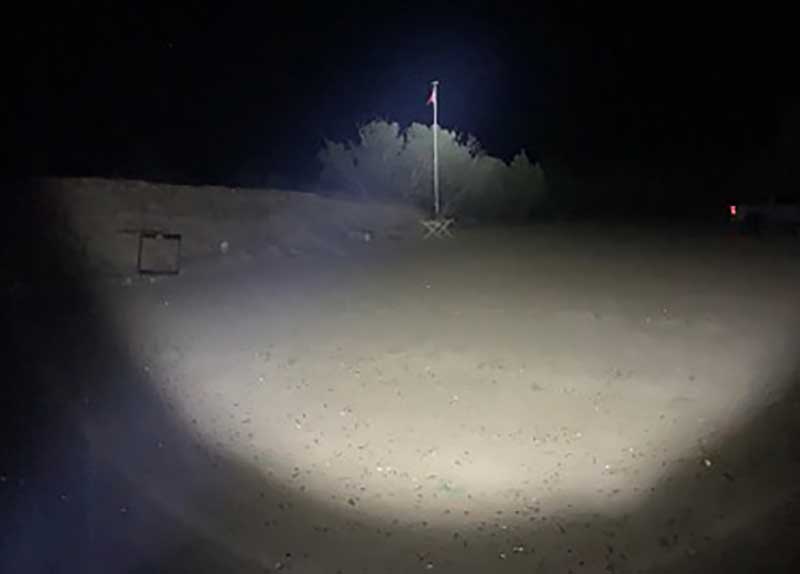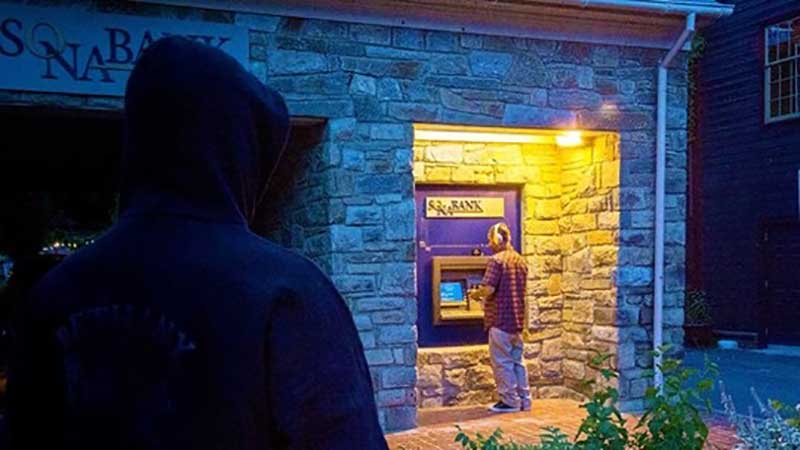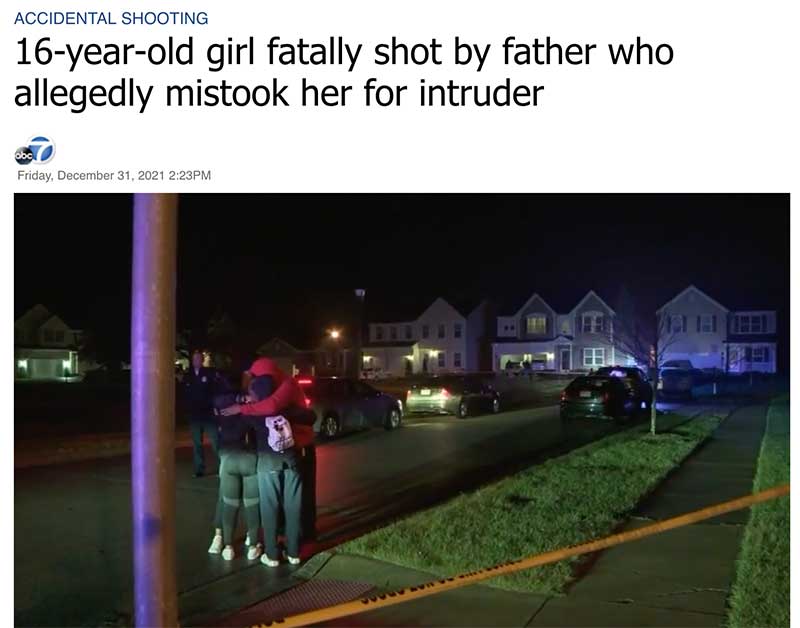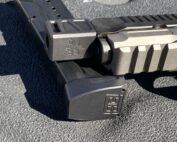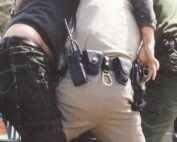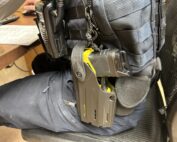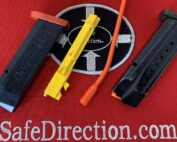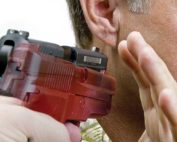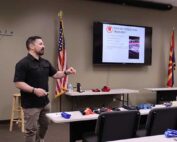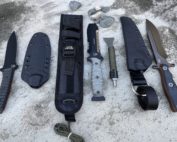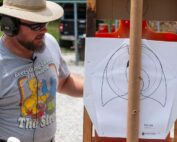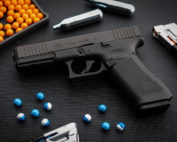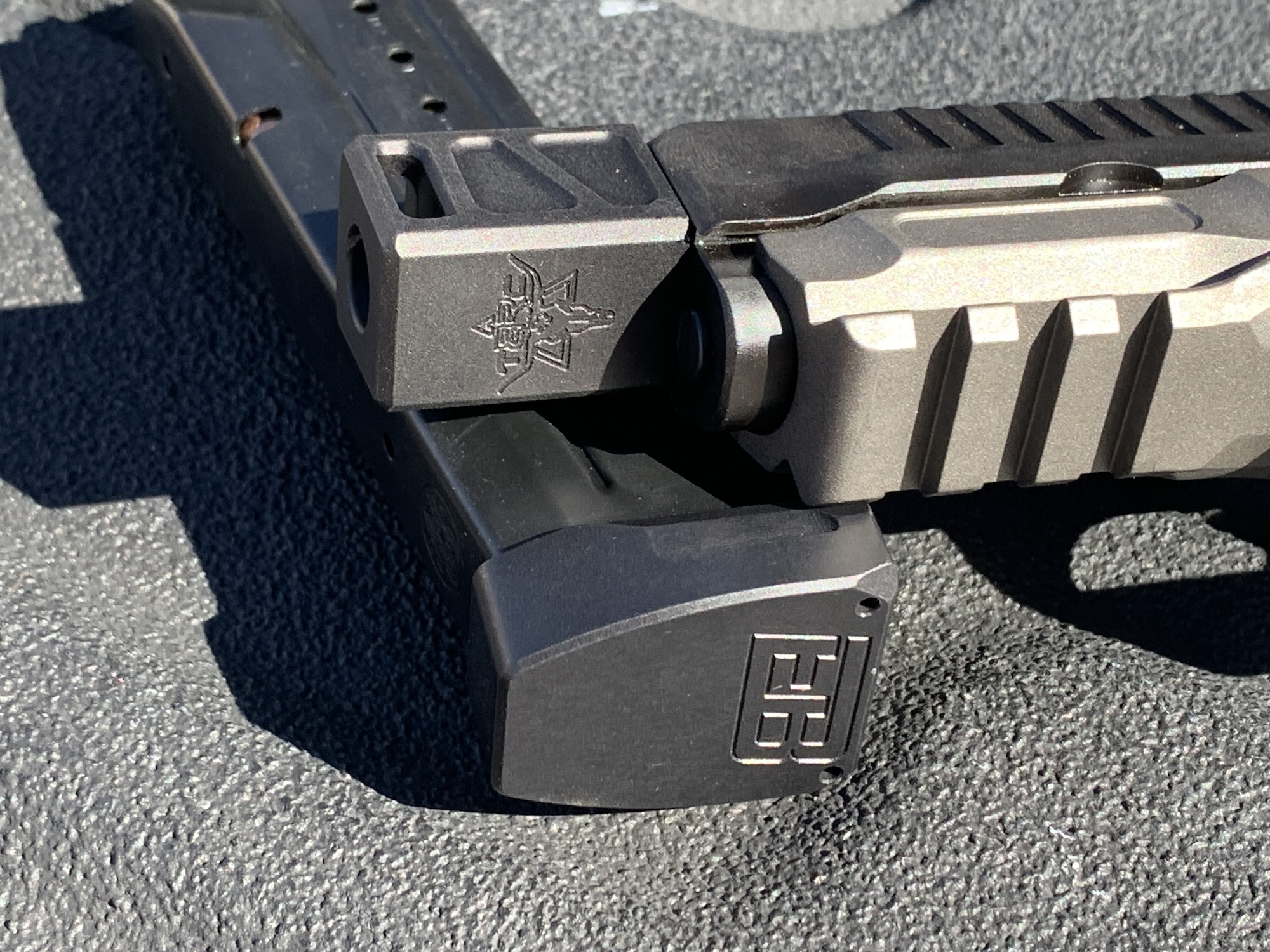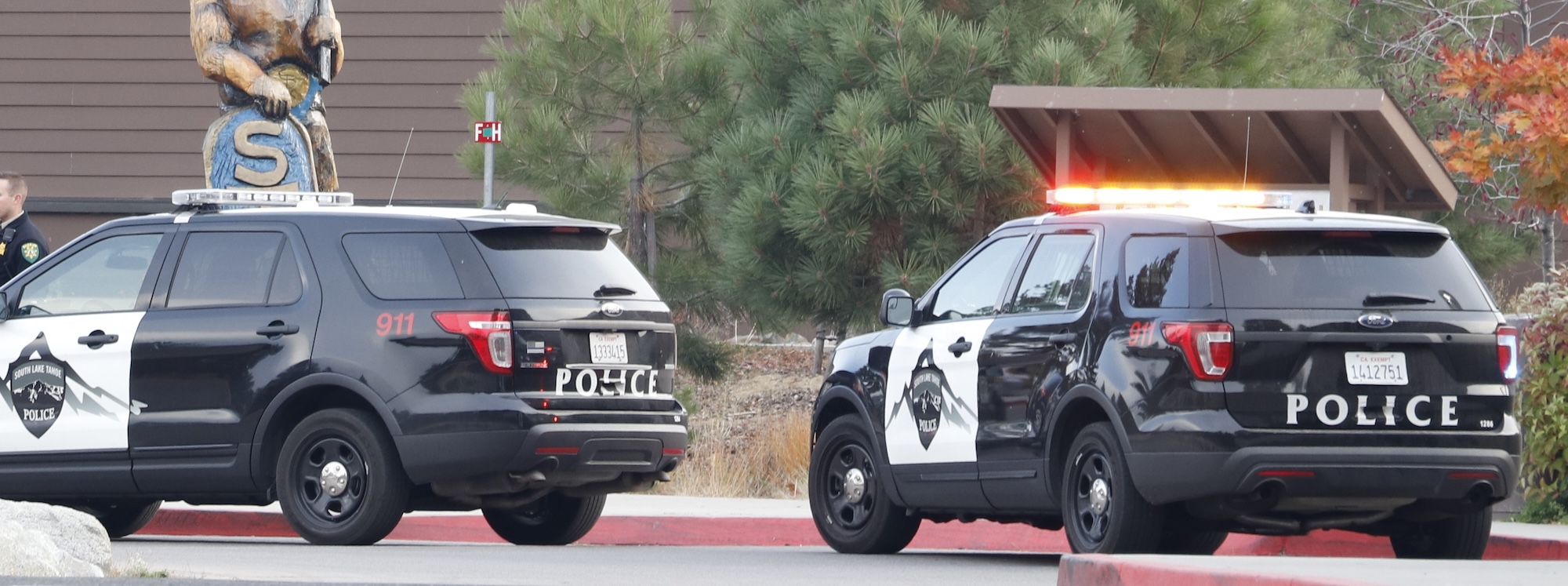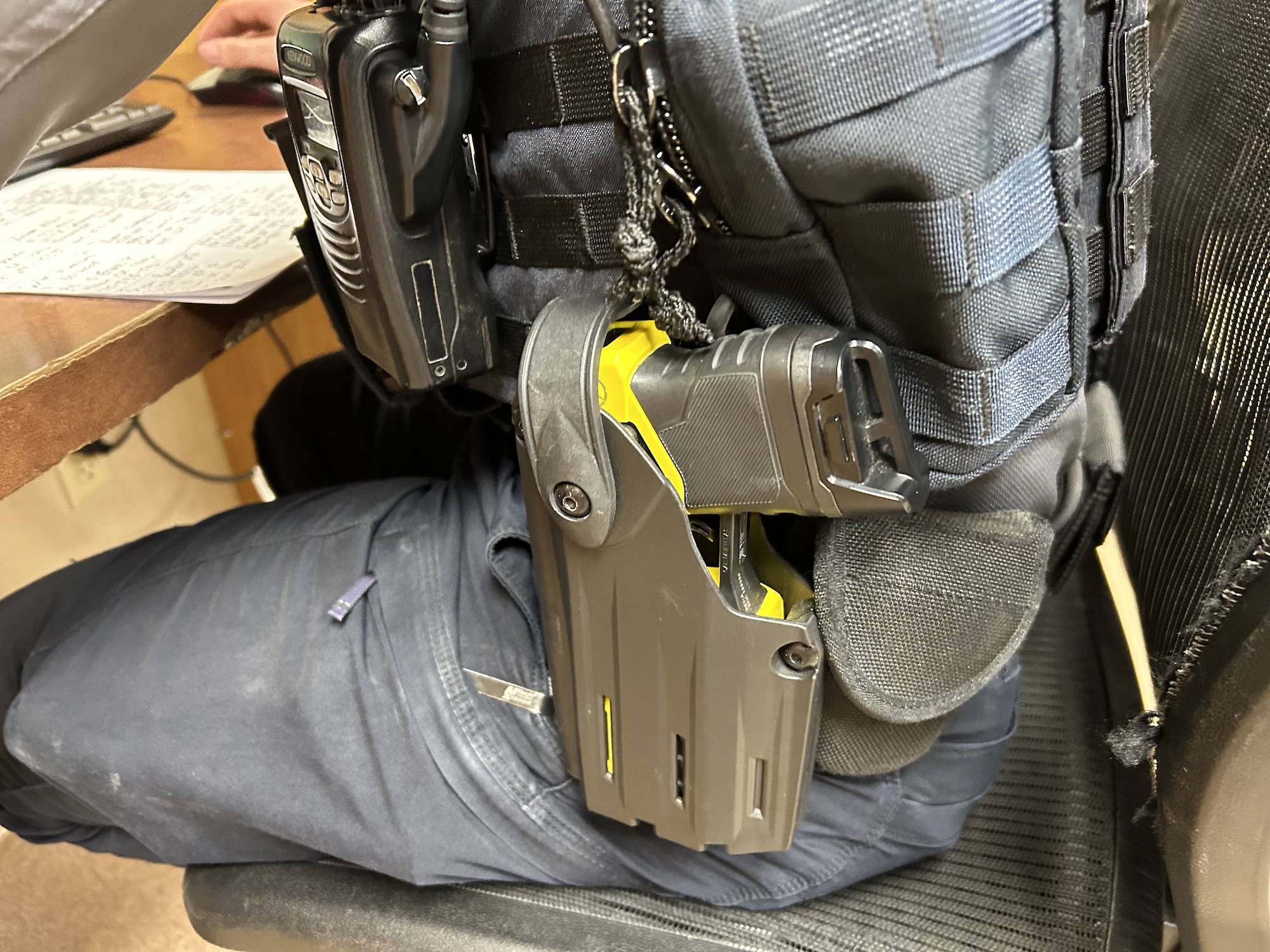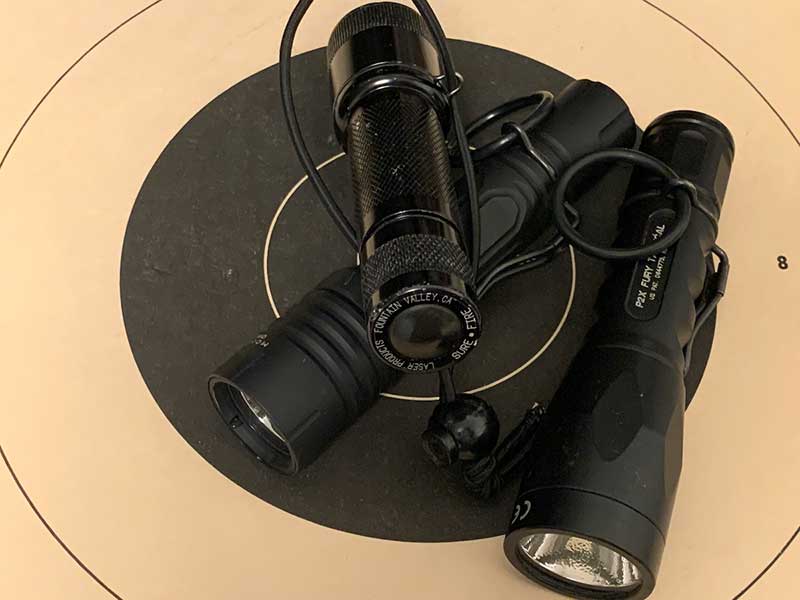
AC-032222-IMG_2665
Low light. It seems either you enjoy working in that environment or you don’t. I did, and I still miss the challenges. Anyway.
Back when the world was flat and pterodactyls were our air support, flashlights were talked about in terms of candlepower.
Then the SureFire 6P handheld, running on two CR123 batteries, hit the market. We were introduced to “lumens,” all 65 of them for tactical use. That is not a knock on SureFire or any other manufacturers from that era. These lights were a lot better than what we had. Over time lumen output increased – significantly. As time moved on, technology improved, and other terminology came into use. We are now on the far side of 1000 lumens with many handheld and weapon-mounted lights.

The evolution of the author’s handhelds, from a Surefire 6P to their P2X Fury and to a Modlite 18650 powered OKW light.
Lumens describe the amount of light radiated from the source, whether incandescent or LED. Candela is the strength of the emitted light. Measuring the intensity of the illumination one meter from the emitter gives you the Lux rating.
Two more specific terms are: Spill – how wide the workable illumination is at a given distance or within a particular space – and Throw – how far the light can project workable illumination.
Range or Throw? Is there a difference in the range (viable distance) for lights? Yes. Is that based on how they are used or what they are mounted on? Yes. It should be based on the range of the weapon it is used with. Handheld and pistol-mounted lights should be comparable in performance while projecting light a minimum of 25 yards. That is the bare minimum, as I would prefer 50 yards. Both shotguns and sub-machineguns can reach out beyond 100yards, so you want a light that will help you identify a person or any other threat out to 150yds. Finally, on a carbine or rifle? 200 yards or more.
One of the things I am interested in is the perspectives different trainers bring to the subject. Two that I’ll specifically refer to in this context are Tom Givens, of Rangemaster Tactical, and Claude Werner, aka The Tactical Professor.
Tom has had 68 non-law enforcement students in defensive shootings the last time I checked. Their record is 65-0-3. 65 wins, no losses, and three forfeits because they weren’t carrying a handgun the day terrible things happened. And many of those shootings stemmed from robberies.
How many of those required the use of a handheld light? Think about it.
Claude spends significant time looking at shootings involving adverse outcomes and what led up to them. He strongly advocates grabbing a handheld flashlight and using it to see who is present before acquiring a firearm. Here is his chart breaking down the percentages of family, friends, and neighbors instead of bad guys.

Who are you more likely to encounter? In your home? At night? A family member or an intruder? (Courtesy of Werner’s book “Serious Mistakes & the Decisions that led to them”)
That is a heck of an argument for first grabbing a light and using it.
How many armed robberies are in Givens’ student numbers? None. Why? Robbery is a proximity crime; the robber has to get close enough to take what he wants. If there’s enough light for the BadGuy to decide to rob you, there’s enough light for you to identify the robber positively.
There are more choices for good, affordable, quality lights with the necessary output. Brands known in every briefing room, like Streamlight and Surefire, continue to put out solid products. Newer, less well-known brands, like Cloud Defense and Modlite, also turn out excellent offerings for your long guns, pistols, and handheld lights.
Get good lights, get good training, and then make the best use of them.

